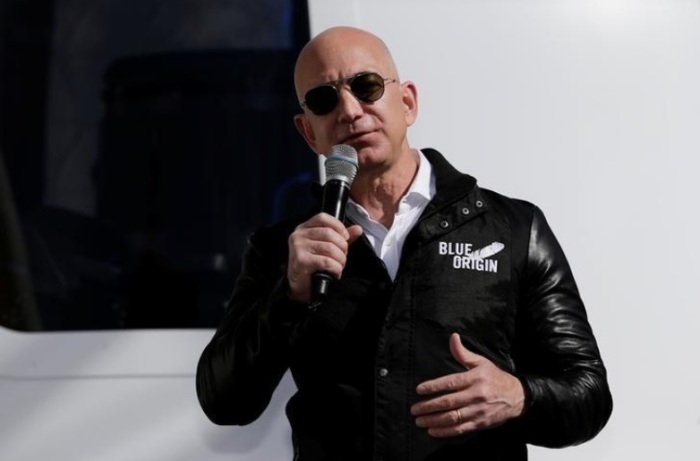WaPo owner Jeff Bezos defends paper's 'principled' lack of Harris endorsement, torches media bias

Jeff Bezos, owner of The Washington Post and founder of Amazon.com, released a statement on Monday defending the newspaper's choice not to endorse Vice President Kamala Harris or any future presidential candidates, despite resignations from disgruntled staffers who support Harris.
“Presidential endorsements do nothing to tip the scales of an election,” Bezos wrote. “No undecided voters in Pennsylvania are going to say, ‘I’m going with Newspaper A’s endorsement.’ None. What presidential endorsements actually do is create a perception of bias. A perception of non-independence. Ending them is a principled decision, and it’s the right one.”
Bezos’ statement comes days after The Washington Post’s publisher, William Lewis, announced that the newspaper would be returning to their former standard of not endorsing presidential candidates.
"The Washington Post will not be making an endorsement of a presidential candidate in this election. Nor in any future presidential election. We are returning to our roots of not endorsing presidential candidates," said Lewis on the newspaper's website.
Bezos also noted the low esteem in which the American public holds most journalists because of perceived media bias, and said endorsing candidates would not help that perception.
“In the annual public surveys about trust and reputation, journalists and the media have regularly fallen near the very bottom, often just above Congress,” he wrote. “But in this year’s Gallup poll, we have managed to fall below Congress. Our profession is now the least trusted of all. Something we are doing is clearly not working.”
Bezos appealed to the apolitical example of Eugene Meyer, who served as The Washington Post’s publisher from 1933 to 1946 and declined to let the paper endorse candidates, which Bezos said was “right.”
Bezos conceded that declining to endorse candidates will do little to regain the trust of the public but called it “a meaningful step in the right direction,” and hit back against any accusations that his business interests compromised his decision.
“Neither campaign nor candidate was consulted or informed at any level or in any way about this decision. It was made entirely internally,” he wrote, adding that he “sighed” when Dave Limp, who serves as chief executive of his Blue Origin, met with Trump the day The Washington Post announced their decision because it would give "ammunition" to those alleging a conflict of interests.
“But the fact is, I didn’t know about the meeting beforehand. Even Limp didn’t know about it in advance; the meeting was scheduled quickly that morning. There is no connection between it and our decision on presidential endorsements, and any suggestion otherwise is false,” he wrote.
Conceding that he is “not an ideal owner of The Post” given the appearance of conflict because of the people in his companies who meet with government officials, Bezos maintained the apolitical nature of his ownership.
“I assure you that my views here are, in fact, principled, and I believe my track record as owner of The Post since 2013 backs this up,” he said.
Since the lack of endorsement, multiple staffers from The Washington Post have resigned in protest, including two columnists and three of the nine members of the editorial board.
Marty Baron, who served as the newspaper’s editor when Bezos bought the paper in 2013 until his resignation in 2021, denounced Bezos’ decision on social media.
“This is cowardice, with democracy as its casualty,” he wrote. “[Former President Donald Trump] will see this as an invitation to further intimidate owner [Bezos] (and others). Disturbing spinelessness at an institution famed for courage.”
The Los Angeles Times also decided not to endorse a presidential candidate this year, which likewise prompted internal backlash, according to CBS News.
More than 200,000 people have canceled their subscriptions to The Washington Post after their decision not to endorse Harris, according to NPR.
Jon Brown is a reporter for The Christian Post. Send news tips to [email protected]




























